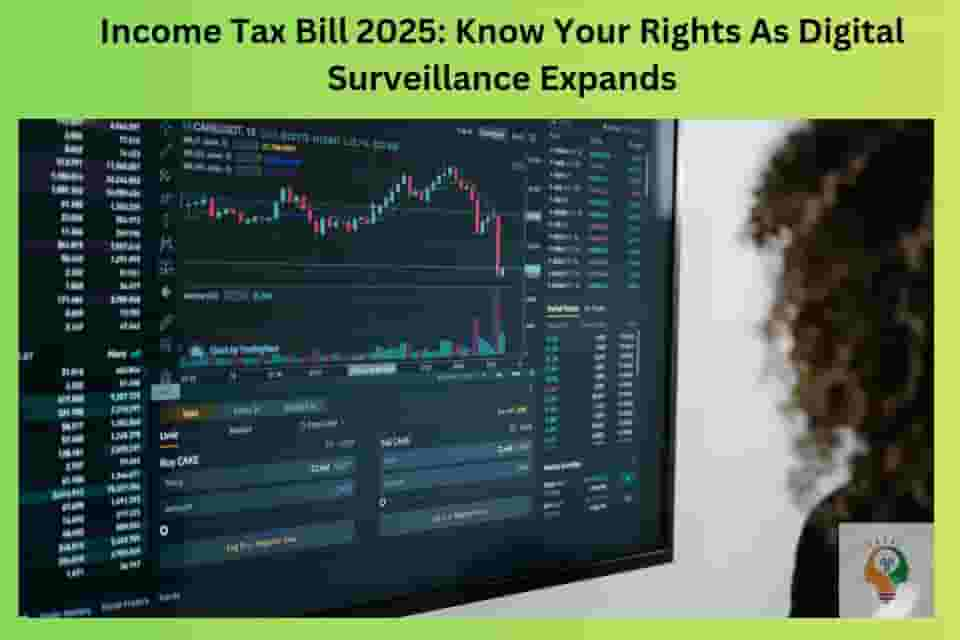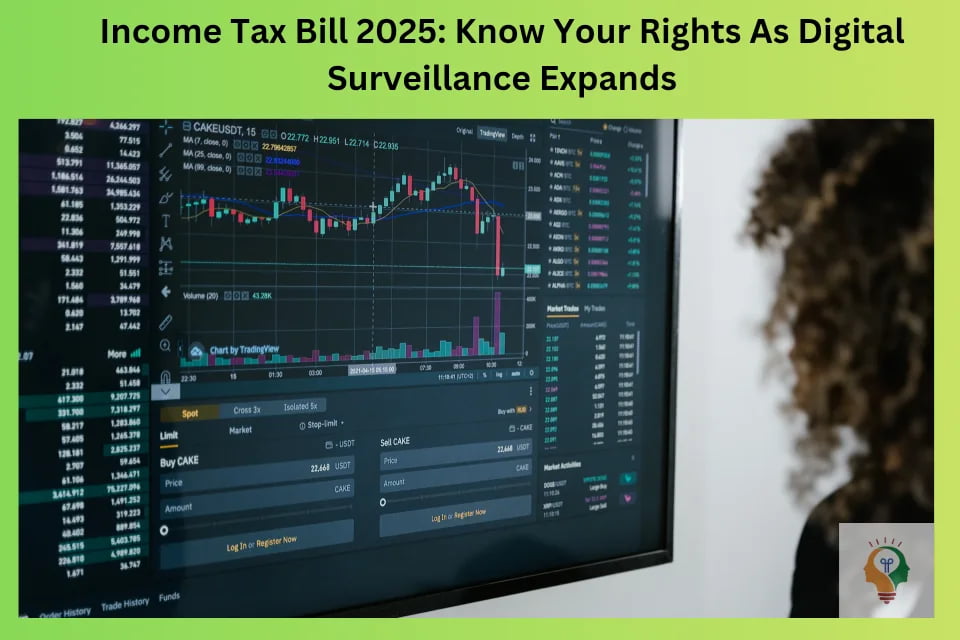Income Tax Bill 2025: Know Your Rights As Digital Surveillance Expands
Updated: 21-09-2025 at 7:21 AM
1k


Significant changes regarding how tax authorities monitor transactions are laid out in the Income Tax Bill 2025. In light of tax evasion becoming increasingly complex due to the surge in online investment, cryptocurrency, and digital banking, the new bill puts forth the ability to digital accounts interrogations in the case of suspected tax fraud.
Although these measures aim to minimise tax evasion, they raise privacy concerns, encouraging taxpayers to reevaluate their rights, compliance obligations, and legal protections about the new framework.
Read More: New Income Tax Bill 2025 Vs. Old Income Tax Act 1961
Key Provisions Of The Income Tax Bill 2025
The Income Tax Bill 2025 introduces stricter digital monitoring while ensuring legal safeguards. Here are the key provisions:
| Provision | Details |
|---|---|
| Section 247 | Expands digital investigations, aligning with Section 132 of the IT Act, 1961. |
| Digital Access Scope | Email servers, social media, online trading, banking, cloud storage, ownership records. |
| Targeted Areas | Cryptocurrency transactions, virtual digital assets, high-value online trades. |
| Legal Safeguards | Digital scrutiny allowed only with reasonable suspicion and legal approval. |
The government’s objective is to prevent tax evasion in the digital economy, particularly involving unreported online earnings and crypto transactions.
Are These Powers New?
Not exactly. During the search and seizure phases, tax officials already have the power to access electronic records.
What’s New?
-
The formal guidelines within the Income Tax Bill 2025 change the digital tax investigation framework. With this, the law becomes clear and precise in its digital inconsistency.
-
Before, tax officers were only able to check tangible items like lockers and safes which weren't accessible. This applies to intangible items as well now.
-
Enhancing regulatory control for misuse enables better protection of taxpayer rights.
Read More: Explaining The Tax Year In The New Income Tax Bill 2025
Your Rights as a Taxpayer
Understanding your rights as a taxpayer is vital when protecting yourself from unfounded probes. Here’s what you need to be cognisant of:
Taxpayers retain the right to:
-
The court challenges the tax department’s actions if there is a breach of their digital privacy.
-
Be served a notice of enforcement action or given a summons before enforcement.
-
Deny access to their digital accounts, although not complying could trigger further investigations.
Tax officials cannot:
-
Conduct arbitrary digital searches for no reason.
-
Take control of electronic documents or records without legal authorisation.
-
Being privy to these rights protects you from wrongful probes the government may seek to conduct.
What Triggers Digital Scrutiny?
Due to the growing number of digital transactions, taxes have become more stringent. If there is any suspicious activity, the authorities will surely take a look into your activities. Here are the triggers that can bring about unwanted attention:
-
You have strong undisclosed foreign and/or online earnings.
-
You do not respond to an official notice from the tax board.
-
There are large amounts for the buying and selling of cryptocurrencies.
-
There is unusual (i.e. suspicious) activity within your bank or trading accounts.
Balancing Tax Enforcement With Privacy
The Income Tax Bill of 2025 is a great development in digital tax compliance. It deepens the scrutiny surrounding tax evasion, but places equally great emphasis on protecting privacy and due process.
As April 1, 2026, approaches, taxpayers should:
-
Grasp the concept of digital tax obligations while also exercising financial openness.
-
Make sure there is compliance with taxation in cryptocurrency, online trading, and foreign income.
-
Know the legal avenues available to guard against unreasonable tax probing.
Read More: New Income Tax Bill: Crypto Earnings To Be Treated as 'Undisclosed Income' During Searches
Conclusion
In the 2025 Income Tax Bill, there will be a shift towards digitised tax tracking that monitors digital activities including cryptocurrency and more. Although taxpayers have to always understand their rights so that the laws are satisfactorily followed regarding the powers of tax authorities, the authorities will still be able to enforce laws git into tax evasion.
Join the conversation and stay informed! Visit the Jaagruk Bharat community page and be part of an active, engaged community as we work day and night to bring information to your fingertips.
0
0
1k
0
0
1k Views
0
No comments available





Our Company
Home
About
T&C
Privacy Policy
Eula
Disclaimer Policy
Code of Ethics
Contact Us
Cancellation & Refund Policy
Categories
Women
Insurance
Finance
Tax
Travel
Transport & Infrastructure
Food
Entertainment
Communication
Government ID Cards
E-commerce
Traffic guidelines
Miscellaneous
Housing and Sanitation
Sports
Startup
Environment and Safety
Education
Agriculture
Social cause
Employment
Disclaimer: Jaagruk Bharat is a private organization offering support for documentation and government scheme access. We are not affiliated with any government body. Official services are available on respective government portals. Our goal is to make processes easier and more accessible for citizens.
All Copyrights are reserved by Jaagruk Bharat